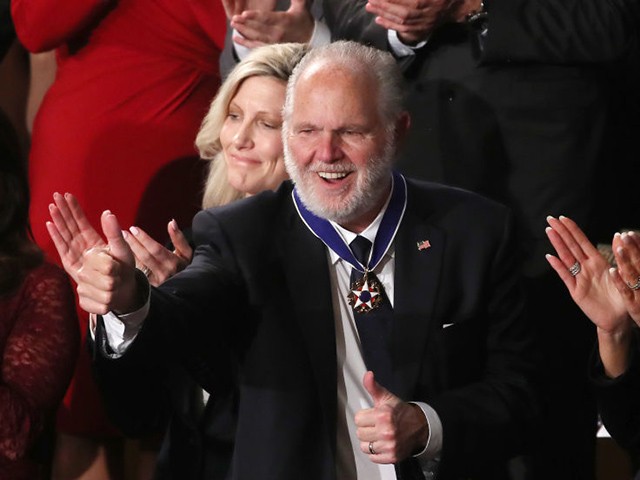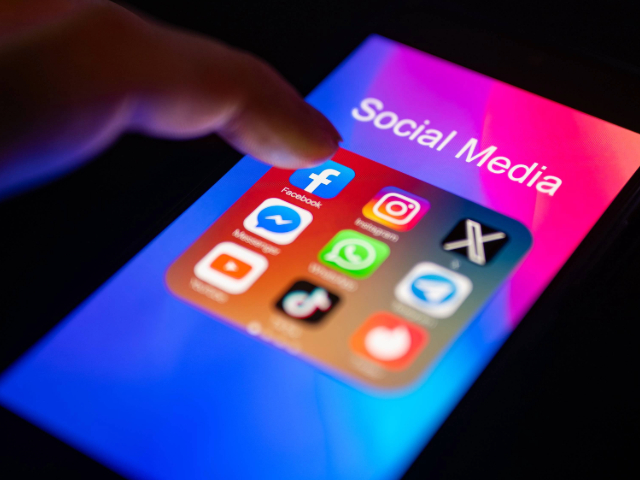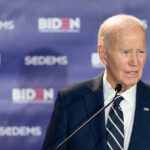
Biden’s Net Neutrality is really the old Fairness Doctrine, revived--and it's still very unfair. A DEI delight.
The post Pinkerton: If You Liked the Fairness Doctrine, You’ll Love Net Neutrality appeared first on Breitbart.
If the Devil can quote Scripture, the word “fairness” can be used as a trick to cloak unfairness. By the same token, the word “neutrality” can be used as a cover for bias and discrimination. It’s all about words and power—and the U.S. government is good at manipulating both.
Case in point: the “Fairness Doctrine.” That nice-sounding rule, which the Federal Communications Commission (FCC) put forth in 1949, was actually unfair in its application. In practice, it restricted conservative speech but not liberal speech; a conservative editorial was forbidden—the penalty for crossing the FCC was losing one’s broadcast license—but consistent liberal bias in news coverage was A-OK.
And it was all part of a consistent plan. In the words of Bill Ruder, a Commerce Department official in the Kennedy Administration who later worked for the Democratic National Committee, “Our massive strategy [in the early 1960s] was to use the Fairness Doctrine to challenge and harass right-wing broadcasters and hope that the challenges would be so costly to them that they would be inhibited and decide it was too expensive to continue.”
Unsurprisingly, the right never liked the Fairness Doctrine; in 1987, President Ronald Reagan’s appointees to the FCC finally repealed it.
The result of the repeal was a Cambrian explosion of conservative expression on the airwaves. The greatest of these was Rush Limbaugh, who burst onto the national scene in the early 1990s and stayed at the top until he died in 2021.

Rush Limbaugh reacts after First Lady Melania Trump presented him with the Presidential Medal of Freedom on Capitol Hill in Washington, DC, on February 4, 2020. (AP Photo/Patrick Semansky)
During that time, liberals tried to bring back the Fairness Doctrine as a way of shutting down Limbaugh and all the other talkers. In Limbaugh’s case, if the Doctrine were in force, his three hours of programming per day would have had to be matched by three hours of daily liberal programming on the same station. And the FCC would use its legal power to adjudicate the fine points about salaries, promotion, advertising rates, and so on. Limbaugh would have been out of a job—and that, of course, was the fond dream of Fairness Doctrineers.
In 2009, the Obama Administration moved to reimpose the Doctrine. Limbaugh ripped the effort as “the tip of the iceberg” of a power grab by the federal government. He was echoed by Sean Hannity, who called the Obama move “an assault on the First Amendment.” Newt Gingrich derided the Doctrine as “affirmative action for liberals.”
Yet during this same time, it was becoming obvious that the proliferation of media—all those websites, blogs, and social media accounts—was undermining the premise of the Doctrine: that it was possible for FCC bureaucrats to monitor “fairness.”

Jonathan Raa/NurPhoto via Getty Images
But of course, fairness was never the actual purpose of the Fairness Doctrine. Instead, the goal had always been unfairness—bias and discrimination against conservatives.
With that in mind, the Fairness Doctrine morphed into a new idea, in tune with the digital era: Net Neutrality. Officially, Net Neutrality is mostly about how much phone and cable companies can charge for the “carriage” of internet traffic on their “pipes.” In fact, the Internet’s acceleration has been a wonder of capitalist success; today, 95 percent of Americans use the Internet, and 80 percent have broadband.
Still, there are controversies. For instance, Big Tech wants to ensure it pays the cheapest possible rate for its wares—all those Google searches and Netflix streams. Indeed, looking ahead to artificial intelligence (AI), the Tech Lords want to ensure that AI, that hoggiest of all data hogs, gets a favored low rate.

David Gyung/Getty Images
Yet Net Neutrality is much more than a haggle between Big Tech and Big Pipe (the internet providers). How so? Because the pro-Net Neutrality forces want the FCC to do the enforcing, and as part of that enforcement, they want to sneak in all the old tools of the Fairness Doctrine, the better to hammer conservatives.
Former President Donald Trump has seen this clearly. Reacting to the Net Neutrality push from Barack Obama’s FCC appointees, Trump tweeted in 2014, “Obama’s attack on the internet is another top down power grab. Net neutrality is the Fairness Doctrine. Will target conservative media.” In 2017, President Trump’s FCC appointees repealed Net Neutrality.

Federal Communications Commission (FCC) Chairman Ajit Pai smiles after voting to end net neutrality on December 14, 2017, in Washington, DC. (AP Photo/Jacquelyn Martin)
Okay, so, now let’s fast-forward to October 2023, when the Biden administration finally gained a majority of the FCC’s five commissioners; the Bidenized FCC immediately signaled its intention to revive Net Neutrality. At the time, Brendan Carr (a Trump appointee and one of just two remaining Republicans on the Commission), warned, “The FCC will begin implementing President Biden’s plan for increasing government control of the Internet.”
Now, six months later, it’s happened. The bureaucratic whip has come down. For fans of the 46th president, it’s all the more delicious because it’s another undoing of the 45th president; hence this April 2 headline: “FCC to Vote to Restore Net Neutrality Rules, Reversing Trump.”
In a slick campaign-style video trumpeting Net Neutrality, Jessica Rosenworcel, whom Biden appointed chairwoman of the FCC, said the internet needed to be “fair”—a word she used twice just to underscore her commitment to the legacy of the Fairness Doctrine. Net Neutrality, she declared, is needed to empower the FCC to “protect the Internet in the name of national security and public safety.” We know what that means.
In our latest video: Net Neutrality and why it’s so important. Internet service is essential, and it should have effective oversight to address internet outages, national security concerns, and consumer protections. Learn more about our upcoming vote to restore #netneutrality pic.twitter.com/X1yA2PhtNc
— The FCC (@FCC) April 3, 2024
Rosenworcel continued, “If bad actors and foreign adversaries are using our networks for nefarious purposes,” the FCC now has given itself “additional tools to fight them.” Ah yes, so the FCC will be fighting “disinformation.” You know, alongside Nina Jankowicz and all the other foo fighters in the Biden Administration.
[embedded content]
In an interview, Rosenworcel went further: “The pandemic made clear that broadband is an essential service, that every one of us—no matter who we are or where we live—needs it to have a fair shot at success in the digital age.” That’s an interesting way of remembering those years. Many of us think the Covid pandemic and lockdown taught Americans that the federal government can work with industries to shut down access; you know, the way Big Government and Big Tech shut down the Hunter Biden laptop story in 2020 or shut down Trump’s Twitter account in 2021. In terms of how that clampdown process actually works, the Twitter Files, released in 2022-3, reveal the revolving door between Big Tech and Big Government. They’re all on the same side. And that has, uh, implications for 2024.
One key to understanding how Net Neutrality will play out is to examine how the FCC already uses its regulatory powers to micromanage media companies, using mandatory reports and quotas to gain enforcement leverage: Don’t make us mad, or we’ll shut you down. In other words, a diversity, equity, and inclusion delight.
As Trump appointee Carr said to Breitbart News in an interview, the Net Neutrality edict is a “power grab by the administrative state…unlawful overreach.” In a ringing official dissent to the Net Neutrality ruling, Carr added, “The FCC once again seeks to pressure broadcasters into making hiring decisions on the basis of race and gender.” Such pressuring, he concluded, is “unconstitutional.”
But of course, in the minds of progressives, the Constitution is not a fixed document but a “living” thing that can be mutated in pursuit of contemporary goals, such as reelecting Joe Biden. Toward that goal, the FCC will use its Net Neutrality hammer.





